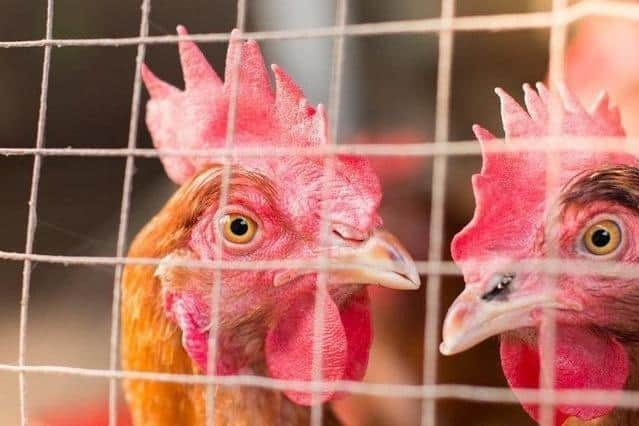Bird flu update: First case in East Lancashire detected in Ribble Valley confirmed as 'highly pathogenic'
and live on Freeview channel 276
H5N1 avian influenza was found at a premises near Clitheroe. Following a risk assessment by he Animal and Plant Health Agency (APHA) a 3km Captive Bird (Monitoring) Controlled Zone has been put in place.
Highly pathogenic means that the virus has the potential to kill chickens if they become infected. The term does not refer to how infectious the virus may be to humans, other mammals or other species of birds.
Advertisement
Hide AdAdvertisement
Hide AdLast week, Lancashire County Council reassured the public that the risk to public health was very low, despite other county-wide cases being detected at a poultry farm near the Fylde village of Salwick and a highly pathogenic virus confirmed at a farm in Salwick on the outskirts of Preston


The avian influenza has also been detected in Lancashire's wild bird populations
Dr Sakthi Karunanithi, director of public health for Lancashire County Council, said: "There is no need to be alarmed by the developments.
"The risk to public health from the virus is very low, however it is important that people don’t pick up sick or dead birds as this can spread the virus.
Advertisement
Hide AdAdvertisement
Hide Ad"If you do find any dead swans, geese or ducks or other dead wild birds while out and about, please report them to the Defra helpline on 03459 33 55 77.
"I would also urge bird keepers to be vigilant for any signs of disease. Avian influenza is a notifiable animal disease. If you suspect any type of avian influenza in poultry or captive birds, you must report it immediately by calling the Defra Rural Services Helpline on 03000 200 301."
Bird Flu (Avian influenza H5N1) is an infectious type of influenza that spreads among birds and in rare cases, can affect humans.
There are lots of different strains of bird flu virus and most of them do not infect humans.
Advertisement
Hide AdAdvertisement
Hide AdDefra (Department for Environment, Food and Rural Affairs) say plans are in place to manage any suspected outbreaks in Britain.
Bird flu is a notifiable disease in animals, so you should report any suspected case in animals to the Animal and Plant Health Agency (APHA), even if you're not sure.
Call the Department for Environment, Food and Rural Affairs (Defra) helpline on 03459 33 55 77 if you find dead wild birds.
The Animal and Plant Agency has said that all bird keepers, including pet birds, commercial flocks or just a few birds in a backyard flock, must keep a close watch on them for signs of disease and maintain good biosecurity at all times. And if there there are any concerns about the health of the birds, seek prompt advice from a vet.
Advertisement
Hide AdAdvertisement
Hide AdThe agency also says that keepers should register their poultry, even if only kept as pets, so they can be contacted during an outbreak.
This is a legal requirement if you have 50 or more birds. Poultry includes chickens, ducks, turkeys, geese, pigeon (bred for meat), partridge, quail, guinea fowl and pheasants.
You can sign up to our alerts service to keep up to date with the latest news. You can also get Defra email alerts or subscribe to Defra’s RSS feed.